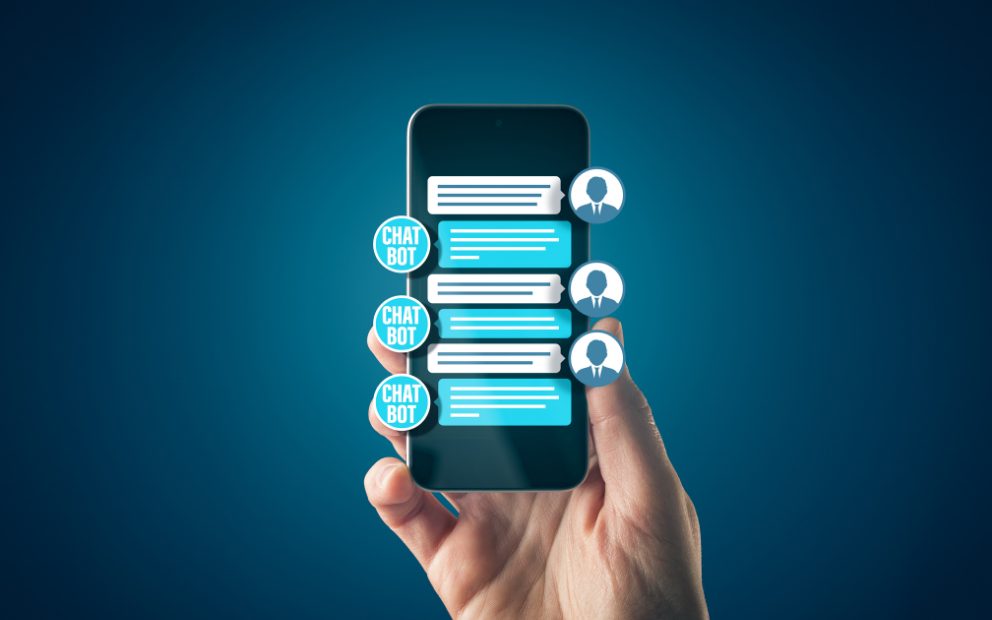Chatbots have become very popular because they save time and resources by automating customer support services. Bots are often used to address common customer inquiries, allowing human agents to focus on solving more complex problems.
We’ve seen our share of bots go to work within organizations. There’s a long list of companies that have been able to lift productivity, boost customer retention, increase customer referrals, and facilitate a better overall experience for their customer.
With all these benefits, there’s still an important question that might be nagging you. What do your customer’s think about using bots in their interactions with you? Read on and find out.
What do consumers think about chatbots?
Before we dive in, let’s consider the knowns.
- Consumers hate to wait
In a survey of “more than 2,500 consumers, nearly 60% of respondents believe that one minute is too long to be on hold,” PRWeb reports. “In addition, 32.3% of consumers believe that customer service departments should be answering immediately—with no hold time.”
- Customer experience is more important than ever
Not only do 80% of customers believe that the experience a company provides is as important as its products and services, according to Salesforce research. more than two-thirds (67%) say their standard of what defines a good experience has been raised. With 76% of consumers and business buyers saying that it’s easier than ever to take their business elsewhere, the pressure is on for organizations to get the customer experience right.
Chatbots aren’t the silver bullet to correcting any and all service issues, but they can complement the support experience. Chatbots often act as the front line, giving customers a quick friendly greeting and providing answers to common questions — fast. And because we know that #1 holds, whether we’re talking about waiting in line for coffee, or waiting in a queue for support, it’s important that companies respond to customers quickly.
- Most consumers have already interacted with a bot
Voice of customer (VoC) platform Usabilla released a report showing that humans love AI and chatbots.The company surveyed 1,000 US consumers in August 2018 who used customer service options such as FAQs, chatbots, or automated options that allowed them to completely avoid human interaction for a customer service issue.
Nearly three out of four (70%) respondents said that they have used chatbots already, and of those who have not, 60 percent said that they would feel comfortable doing so.
All of these findings back what everyone already instinctively knows. Consumers want real-time interactions, and chatbots deliver. According to research, the majority (86%) of consumers would choose getting an answer from a chatbot over filling out a form on your website.
Why Consumers Like Using Chatbots
According to ZDNet, 54% of consumers would always choose a chatbot over a human customer service rep if it saved them 10 minutes. There are three simple reasons why consumers like using chatbots:
- Always On
Chatbots don’t need coffee breaks, holidays off, or long weekends. Chatbots are the always-on extension of your contact center. Customers like that they can get some support no matter when they need it, even if it’s outside of your normal business hours.
- Fast Responses
Unlike human agents, chatbots can access information with greater speed and consistency. Consider how quickly a bot can look up an order and provide a customer with a tracking number. Even transferring the customer’s conversation, either to another bot or to a human agent, happens with a lot less frustration and friction from the customer’s end than, say, being placed on hold during a phone call.
- Convenient Access
With so much time spent on their phones, consumers appreciate how easy it is to engage with and respond to a chatbot on mobile messaging. Customers get the help they need, when they want, and wherever they prefer. Rich messaging experiences, such as those provided by Apple Messages for Business and Google’s Business Messages are examples of how bots can present options to schedule appointments, add products to a shopping cart, or look up order information. These experiences are beautifully-designed, media-rich, and offer simple touch targets for customers to engage on-the-go.
How Consumers Use Chatbots
Chatbots are on the company front lines in a wide-range of industries. Research shows that there are even some transactions that the majority of consumers expect to do without any human interaction.

Things such as scheduling appointments, receiving order status, updating personal information, and getting updates on recent transactions are common customer inquiries easily handled by bots. But, chatbots aren’t just for common, redundant tasks.
In the Forrester Webinar “How to Successfully Deploy Messaging and Bots In Your Business,” we heard from two very different companies using messaging and bots. Devlin O’Neill discussed how Lululemon is using bots to help retail customers find the right product, while Thomas Crawford from the Mortgage Center spoke about helping homeowners refinance.
As stated above, consumers are becoming more comfortable with chatbots. The reason is clear – whether it’s getting a product recommendation, promotion, or a reminder that their credit union can refinance their home, consumers want to get the information they need fast. If they feel like a solution gets them information more quickly and allows them to achieve a goal (like getting a better mortgage rate), they’re more likely to engage with it and feel satisfied with that interaction.
Redefine Support With A Chatbot In Your Organization
When the experience is done right, consumers love engaging with bots. Your customers will expect to find your bots to be quick, easy, informative, friendly, and dare we say, sometimes a little fun.
Quiq’s digital engagement platform enables you to design and deploy bots across your entire organization on all of the channels your customers want to use. Any combination of native Quiq customer service chatbots, bots developed in third-party bot platforms and human agents can participate in a conversation. Schedule some time with a conversation expert to see how bots can go to work for you and your customers.




